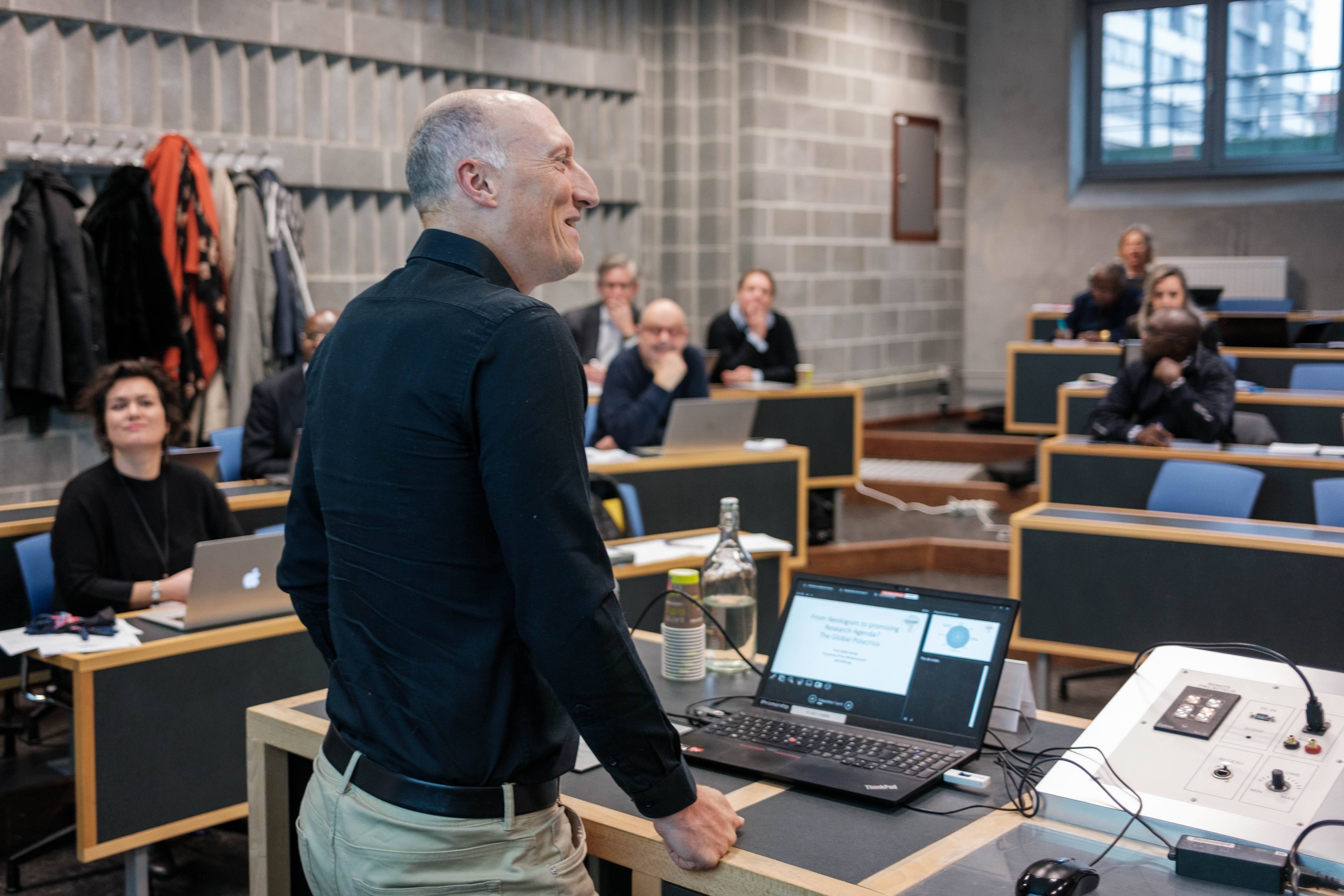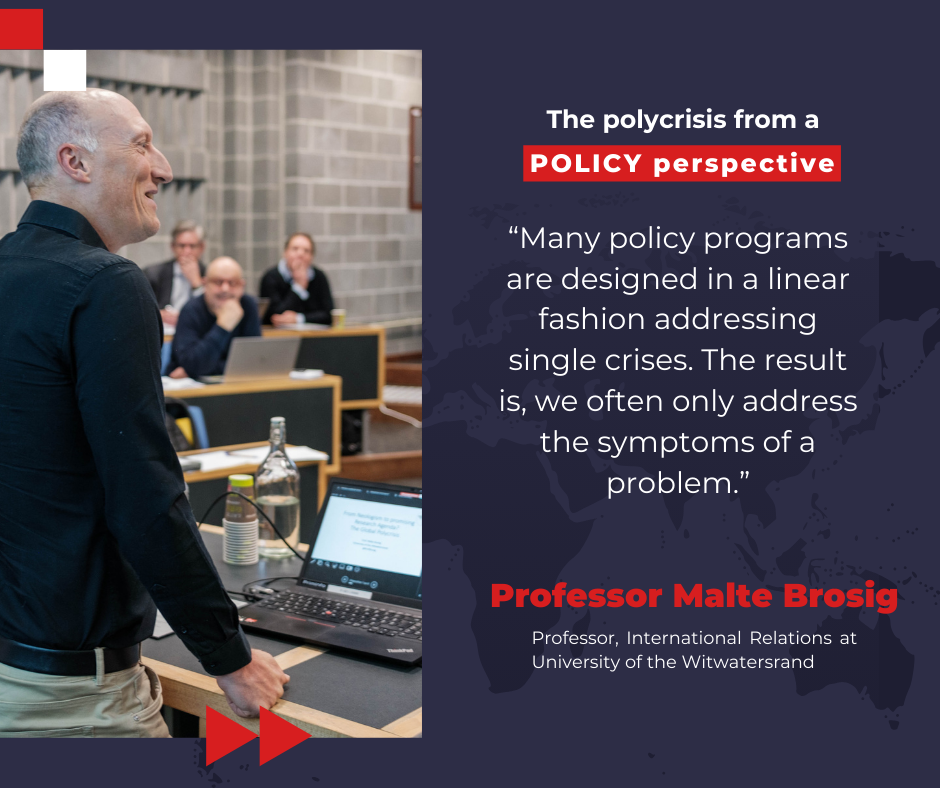
Q&A with Professor Malte Brosig
Q. When and where did you first come across the term polycrisis, and how did you get interested in it?
Q. How would you briefly define the term?
A polycrisis is understood as multiple interlinked crises, which condition each other creating a system in their own right. A strong emphasis is placed on crisis interconnection cross cutting many spaces and policy fields".
Q. Is it a new term for phenomena that have been there for some time, or is it about a genuinely new phenomenon?
A. That multiple crises are hitting human society is not a new phenomenon. In the end, all social entities experience a moment of crisis at least once in their life-time. What distinguishes the global polycrisis from multiple crises of the past, is the synchronisation of events and their scale. This becomes most obvious in research on the Anthropocene and when exploring the consequences of climate change. At no point in human history have we been able to transform the planetary livelihoods to the extent we are witnessing now. The loss of biodiversity, irreversible changes in natural habitats we rely on are unparalleled. The way and manner in which we are interconnected is also new in human history and one chief condition accelerating the transformation of single crises into a polycrisis.
Q. By whom is the term currently most intensively used, and to which ends, in Africa and in Europe?
A. Adam Tooze has contributed a lot in popularizing the term, it was also a central theme at the 2023 World Economic Forum and former EU Commission president Jean-Claude Juncker referred to it frequently. For Europeans the density of crisis events is often referred to the close succession of crises from 2008 onwards. Here to mention are the financial and debt crisis, high number of refugees, erosion of multilateral institutions such as the EU through populist parties, COVID-19 or Russia’s invasion of Ukraine. For many Africans daily life is shaped by numerous existential threats for decades. The post-colonial phase of the continent continues to be marred by weak state institutions, under-development, frequently recurring armed conflict, a high disease burden and rising food insecurity. Additionally climate change exerts significant pressure on society and natural habitats. Africa far more than Europe experiences the consequences of the polycrisis.
Q. Do you see a potential for the polycrisis approach to allow better policy advice?
A. Yes, certainly. First of all the term polycrisis gained in popularity because it is fairly obvious that we are confronted with multiple crises which cannot be addressed in isolation. In this regard the term polycrisis is not just of academic or intellectual importance. It is deeply rooted in empirical observation with real consequence for real people. However, the challenges which accompany the polycrisis are not well understood. Many policy programmes are designed in a linear fashion addressing single crises. The result is, we often only address the symptoms of a problem. However, translating the abstract concept of polycrisis into specific policy advice is a challenge because no quick fix and ready to apply solutions exist in an environment which is shaped by complexity. What is key, is the willingness and ability to learn and flexibly adjust to new challenges which are not reducible to neat causes.
Q. Is the term connected to the idea of tipping points, which feature prominently in ongoing debates about climate change and the anthropocene?
A. It somehow is. Within polycrisis research the term cascade is often used interchangeably with the notion of a tipping point. It refers to a situation in which a single crisis is spreading beyond its original place of emergence. Tipping points in environmental studies describe a crisis within a single system, which is occurring quickly and is irreversible. How, when and why crises are spreading is still unclear and part of ongoing research. Crises are not unstoppable avalanches but their interconnection poses challenges. We do not know much about crisis contagion.

